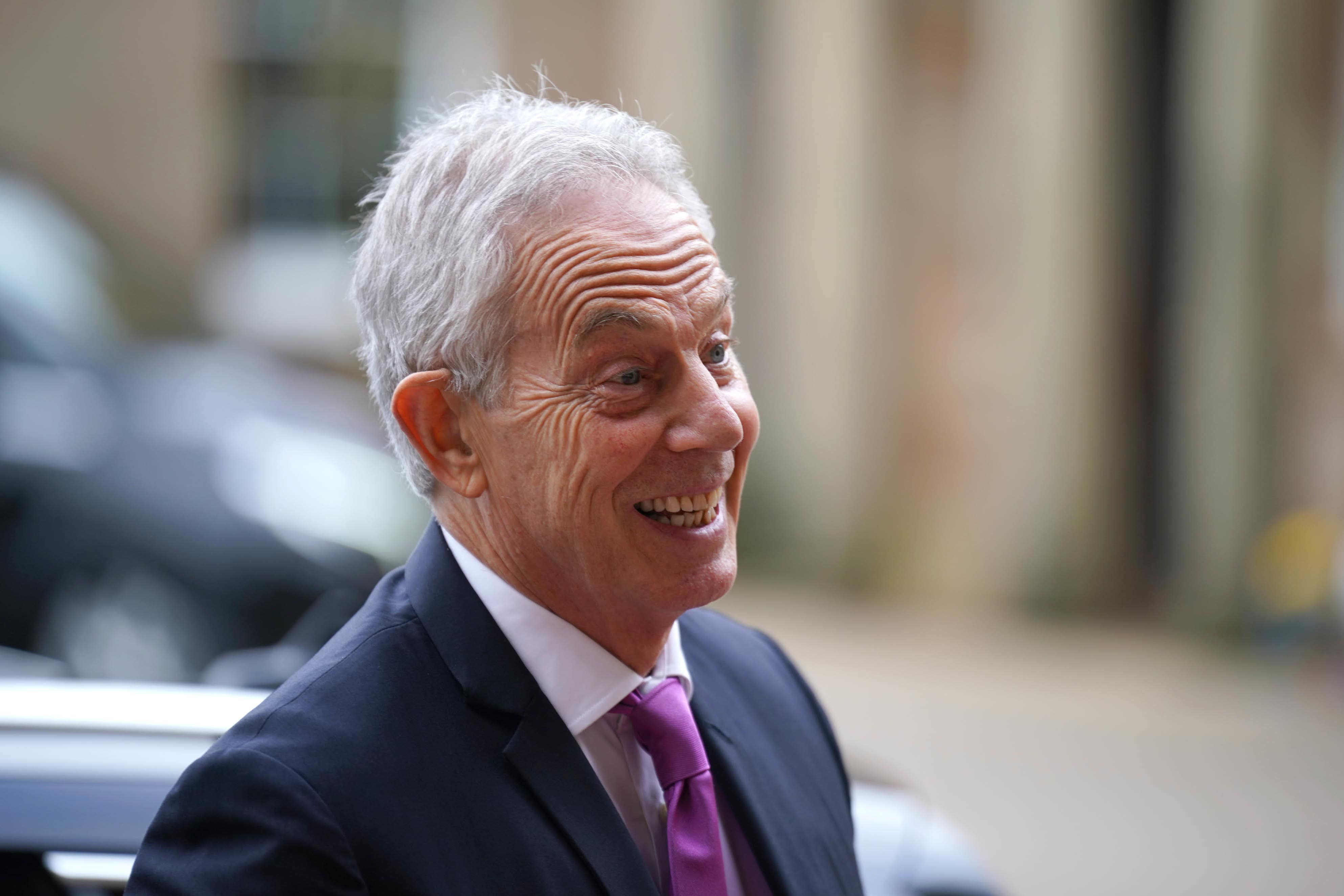Tony Blair is right that the NHS needs radical change – he just hasn’t gone far enough
The former PM is advocating for big changes including more private sector involvement – that might not be popular with voters, but politicians need to be brave, writes John Rentoul


Rishi Sunak and Keir Starmer made a pilgrimage to Westminster Abbey this morning to leave offerings at the shrine of the NHS. They cannot afford to say anything against the national religion for fear of losing votes come the election.
But behind this public show of orthodoxy, heretical ideas are gaining ground. Yesterday, Sajid Javid, who resigned as health secretary a year ago today, argued that the health service needs “fundamental” change. Today, Tony Blair said it needs to be “transformed”.
Wes Streeting, the shadow health secretary, has said that just as “only Nixon could go to China”, only Labour could reform the NHS, implying that this would involve overthrowing the old assumptions.
It was notable, though, that Steve Barclay, the current health secretary, shied away from the language of revolutionary change, saying instead that “the NHS must evolve”.
One person who should be listened to in any debate about the future of the NHS is the prime minister who made it work. For a few years at the end of the Labour government, waiting lists were right down and patient satisfaction was at a record high.
So Blair’s plan should be taken seriously. Part of it is familiar, and it catches the headlines: a greater role for the private sector. This is still heresy against the orthodoxy that was worshipped at Westminster Abbey, but the crisis in the NHS is now so deep that we may be approaching a turning point.
Just as when he was in government, Blair insists that new private providers must supply NHS services that are free at the point of use – that sacred principle is not yet ready for public refutation. But defenders of the old religion are suspicious because Blair advocates several other changes that would also open up the NHS and break up its monopoly.
He wants to use tech to put more power in the hands of patients through the NHS app, and to focus on “incentives not structures”, to create a radically decentralised system that would be “self-improving”.
That is very much the unfinished business of the Blairite revolution of the New Labour government. Alan Milburn, who was Blair’s health secretary, told my students at King’s College London recently: “Outcomes got better; performance got better; but culturally, did I get where I wanted to in terms of being able to permanently change the system, so that it felt more owned by the patients and less by the doctor or by the politician? No. That’s the unfinished work in my view that has to be done.”
Milburn was realistic about the limits of the politically possible: in the end, he was forced to compromise on the financial independence of NHS trusts. Gordon Brown opposed full independence on grounds of fiscal prudence, but he could block it only because public opinion wanted public services to be publicly owned.
That is still the nub of the issue, and Milburn is unapologetic. “It’s not that I didn’t care about what the public thought,” he said, but he knew that his market-style changes were “never going to be popular with the public. Why would they be? But the truth is, what is popular is shorter waiting times, better outcomes and higher levels of public confidence. You’ve got to have faith.”
The big question is whether, despite bowing to the ancient gods in the abbey today, Starmer has the courage to go further than Brown did in the last Labour government.
I suspect that fundamental change will have to come from Labour – the Conservatives will never be permitted by a distrustful electorate to interfere with the core principles of the NHS. But the voters, and the Labour leader, might let Streeting follow his radical instincts.
Streeting has said, as Blair once did, that he doesn’t care who provides an NHS service as long as it is free at the point of delivery; and he has spoken about taking away the right of family doctors to act as exclusive gatekeepers to NHS services – which would open up the system dramatically.
We don’t know where this would lead. Personally, I now believe that the only way to protect the health service against being starved of resources by a future government is to move to a continental European system of social insurance, in which taxpayers, patients and employers share the cost.
Blair’s proposals do not go far enough if that is the case. But his plan for a radically devolved and tech-enabled NHS might allow such a transition many years in the future. Blair naturally focuses on the immediate priority, which is to increase effectiveness (and to continue to increase spending). But the debate about moving beyond the NHS model for healthcare has started, and it should not be suppressed.
Sunak and Starmer’s attendance at the abbey sums up the problem. We can all give thanks for what the NHS has done. But it is a health service, not a religion, and it needs to change.






Join our commenting forum
Join thought-provoking conversations, follow other Independent readers and see their replies
Comments